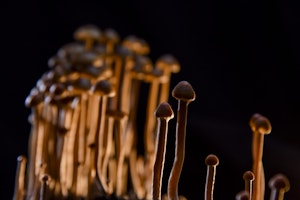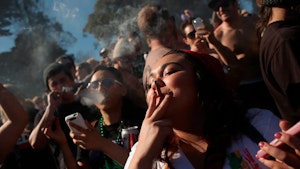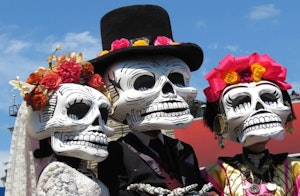
Photo by Jana Klintoukh
Ayahuasca, a potent psychedelic brew, has captured global attention far beyond its South American roots.
With growing curiosity about its profound journeys, a common question arises: How long does a typical ayahuasca session last?
While a typical session lasts 4 to 6 hours, many factors can influence this timeline.
This exploration takes you to the core of the ayahuasca experience, examining the length of its effects and the various factors that influence them.
What Is Ayahuasca?

Cauldron used for bewing psychedelic ayahuasca tea/Photo by Eraldo Peres
Ayahuasca is a plant-based psychedelic brew that stands out for its intense hallucinogenic effects. It is deeply rooted in the ceremonial traditions of South America’s indigenous populations and Amazonian tribes.
Over the past few decades, the use of ayahuasca has extended far beyond its origins, gaining popularity across Africa, Asia, Europe, and the United States.
Ayahuasca retreats have emerged as a popular gateway for those wanting to consume ayahuasca more ceremonially or traditionally.
What Is Ayahuasca Made Of?
The ayahuasca brew is primarily made from:
- Banisteriopsis caapi vine, containing monoamine oxidase inhibitors (MAOIs),
- Psychotria viridis leaves, which contain the psychedelic compound dimethyltryptamine (DMT)
The preparation involves smashing the Banisteriopsis caapi vine and combining it with Psychotria viridis leaves, then boiling them in water until a brown-reddish liquid with a pungent taste and smell emerges.
Multiple rounds of boiling are often required to achieve the desired concentration. Typically, the final brew is consumed as tea.
How Does Ayahuasca Work?
The mechanism behind ayahuasca’s psychoactive properties hinges on the combination of DMT and MAOIs.
DMT is a powerful psychedelic compound. On its own, DMT is not orally active because it gets rapidly broken down by monoamine oxidases (MAOs) in the gut and liver. This means that if you were to ingest DMT by itself, the enzymes in your digestive system would deactivate it before it could have any significant psychedelic effects.
However, the MAOIs in the Banisteriopsis caapi vine inhibit these enzymes, allowing DMT to enter the bloodstream and cross the blood-brain barrier with ease.
Once in the brain, DMT binds to serotonin receptors, significantly impacting mood and perception. This interaction is believed to be responsible for ayahuasca’s notable effects.
How Long Does An Ayahuasca Trip Last?
The ayahuasca trip isn’t the same for everyone. Typically, it lasts 4 to 6 hours, but many factors can change this duration and make the trip unique for each person.
After taking ayahuasca, you can expect:
Effects kick in around 30 to 60 minutes after ingestion
Peak effects usually last 2 to 6 hours
Total duration can be as short as 2 hours or as long as 15 hours
The variability in the ayahuasca experience can be attributed to a combination of personal and external factors, including:
Physical Characteristics: A person’s height and weight can affect how their body metabolizes the ayahuasca.
Dosage: Higher doses of the ayahuasca brew can lead to longer and more intense experiences.
Previous Experiences: If you’ve taken ayahuasca before, depending on the dose taken, you may find the duration and effects less strong than the last time.
Taking Other Substances: Using supplements, medications, or other drugs can impact the ayahuasca trip length and intensity, as these substances can interact with ayahuasca in unknown ways.
Ayahuasca Effects

Photo by Ren/Getty Images
Ayahuasca has profound effects, ranging from vivid hallucinations to deep emotional healing, widely discussed by public figures like Jada Pinkett Smith and Aaron Rodgers.
These eight critical effects highlight the transformative power of ayahuasca, offering insight and healing on both a personal and spiritual level:
Intense visual and auditory hallucinations—vivid, colorful patterns, shapes, and visions of real and mythical entities—can include hearing voices, music, or sounds that have no physical source.
Alterations in the perception of time and space—the human sense of space and scale can be dramatically altered, transforming a single moment into an experience that feels like an eternity or like time is moving at lightspeed.
Deep emotional experiences—intense emotions can arise, from overwhelming joy and love to profound sadness or empathy. Users might find themselves revisiting past traumas or confronting deep-seated fears and anxieties, leading to an emotional release and perhaps resolution.
Euphoria—moments of intense happiness are common, and users might feel great peace and contentment after consuming the brew.
Insight—many users report receiving significant insights into personal, life, or philosophical issues.
Healing—psychologically, studi
Spiritual awakening—users are often left feeling awakened to a greater reality beyond the physical world, encountering divine beings or experiencing a profound connection with the universe.
Challenging and possibly frightening visions and revelations—not all ayahuasca experiences are positive or comforting. Some users experience challenging visions, facing their deepest fears or confronting unsettling truths about themselves or reality. Even though users describe these experiences as scary, they are often considered necessary for growth and understanding in hindsight.
Ayahuasca Side Effects
Consuming ayahuasca can lead to many side effects. Some of these may be uncomfortable or pose health risks.
Some common side effects experienced by those who take ayahuasca are:
- Illness
- Severe sweating
- Elevated blood pressure
- Hallucinations
- Vomiting
- Diarrhea
- Dizziness
- Paranoia
- Panic attacks
- Temporary confusion and disorientation
Is Ayahuasca Safe?
The question of ayahuasca’s safety invites a complex response.
Throughout this article, we’ve touched on various side effects associated with ayahuasca use, such as intense vomiting, unsettling hallucinations, and panic attacks.
While potentially alarming, research into ayahuasca’s side effects within clinical trials has suggested that these adverse reactions, including vomiting and diarrhea, are considered part of the spiritual ‘purge,’ with no major incidents reported across numerous studies.
Yet, an international survey highlighted that a small percentage (2%) of ayahuasca users required medical attention for physical side effects, and more than 50% of the participants experienced “challenging” psychological effects. These included hallucinations, feelings of disconnection, and intrusive, disturbing thoughts.
Given ayahuasca’s potent hallucinogenic properties, it’s clear that while the substance may not frequently pose severe risks, its use demands a high degree of caution. This is particularly true for individuals with existing health or mental health concerns.
So, while the potential for profound experiences does exist, so does the possibility of encountering challenging and, sometimes, harmful effects.
Herb Recommended Products:
READ MORE










